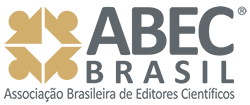0302/2007 - O Programa de Agentes Comunitários de Saúde no Ceará: o caso de Uruburetama
A case study of the Community Health Agents Program in Uruburetama, Ceará.
Autor:
• Maria Marlene Marques Ávila - Ávila, M.M.M. - Eusébio - Universidade Estadual do Ceará - <marlene.avila@uece.br>ORCID: https://orcid.org/0000-0002-8511-2524
Área Temática:
Não CategorizadoResumo:
O Programa de Agentes Comunitários de Saúde institucionalizado em 1991, foi a primeira estratégia para a atenção primária no Brasil, sendo a segunda, o Programa Saúde da Família. No Ceará o trabalho com agentes de saúde existe desde 1986. O estudo objetivou identificar as práticas das agentes em Uruburetama-CE. As técnicas utilizadas foram a observação e entrevistas. As principais informantes do estudo foram 15 agentes de saúde que acompanhavam 19 crianças de 0-12 meses de idade, no período de agosto de 2004 até agosto de 2005. A partir da categoria analítica agente educador, foram identificadas as categorias empíricas: agente de saúde com conhecimentos insuficientes; agente de saúde impotente diante dos determinantes socioeconômicos; agente porta de entrada do PSF; agente pau pra toda obra; e os temas: práticas de saúde descontextualizadas das condições sociais e uma relação de conflitos. Considera-se que as agentes de saúde precisam ser mais capacitadas para desenvolver suas atividades; não têm a compreensão mais ampla dos problemas vivenciados pela comunidade e lhes falta maior apoio na ESF. Aponta-se a necessidade de reforçar a capacitação da agente de saúde, mas prioritariamente, fortalecer sua ação como educadora popular em saúde.Palavras-chave: Agentes de saúde; práticas de saúde na atenção primaria; educação popular em saúde.
Abstract:
AbstractThe program of community health agents was institutionalized by the Department of Health in 1991, which preceded the Family Health Program (PSF), was the first strategy of its kind on a national scale to bring attention to improving health in Brazil. In Ceará, this program exists since 1986. This study’s objective is to identify and discuss the practices of health agents within the community. Interactions between a specific group of infants in their first year of life and community health agents were followed and examined using individual interviews, focus groups, and field observations to gain a greater understanding of the common practices and the obstacles faced by these health agents. The study took place in Uruburetama, Ceará. This study followed 19 infants born from August 2004 until the conclusion of the study in August 2005. 15 agents were the main source of information of this study. By looking at the analytical category of the health agent as an educator, it was empirically identified that these health agents have an insufficient knowledge of the root causes and consequences of the social-economic determinants; and that the health practices themes and information are taken out of context of reality. This study points out the need to reinforce the health agents’ training and, more importantly, strengthen their action as health educators in the community.
Keywords: health agents; primary care health practices; popular health education











